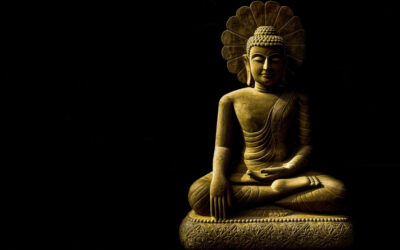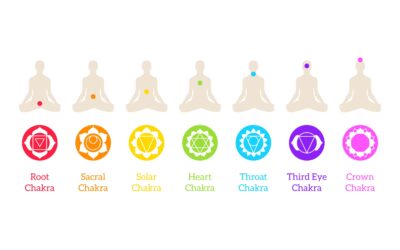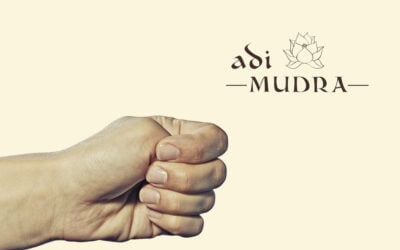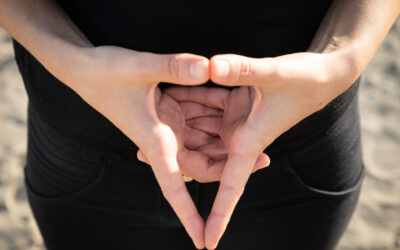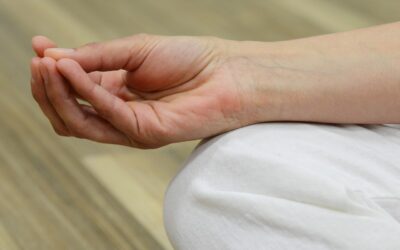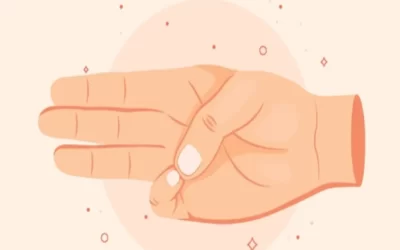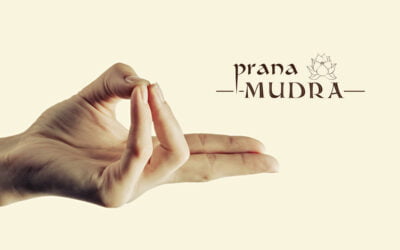Muladhara Mudra also known as the Root Lock Gesture is a powerful hand gesture used in yoga and meditation practices. Derived from the Sanskrit word “Mula” meaning root and “Adhara” meaning support, Muladhara Mudra aims to activate and balance the Muladhara Chakra, which is located at the base of the spine. This chakra is associated with feelings of grounding, stability and security.
By performing this mudra, individuals can experience various benefits such as increased focus, improved self confidence and a sense of connection with the earth.
However, it is important to be aware of the potential side effects and to perform the mudra correctly to avoid any adverse effects. In this article, we will explore the benefits, side effects and provide a step by step guide on how to perform Muladhara Mudra effectively.
Benefits of Muladhara Mudra.
Some of the notable benefits of practicing the Muladhara Mudra include:
1. Grounding and Stability.
This mudra helps in establishing a strong sense of grounding and stability within oneself. By activating the root chakra, it enables individuals to feel more rooted and connected to the earth. This can be particularly beneficial for those who often feel scattered or unbalanced.
2. Enhances Energy Flow.
The Muladhara Mudra helps in harmonizing the flow of energy in the body. By stimulating the root chakra, it allows the vital life force energy (prana) to circulate smoothly throughout the entire energetic system. This can lead to increased vitality, improved overall health and a heightened sense of wellbeing.

3. Boosts Self Confidence.
This mudra is also known to enhance self confidence and self esteem. By activating the root chakra, it cultivates a sense of inner strength and empowerment. This can be especially beneficial for individuals who struggle with feelings of insecurity or low self worth.
4. Supports Physical Health.
The practice of Muladhara Mudra has been associated with various physical health benefits. It is believed to help strengthen the immune system, enhance digestion and improve overall vitality. It can also assist in relieving conditions such as lower back pain, sciatica and other issues related to the lower body.
5. Promotes Emotional Stability.
By balancing the root chakra this mudra aids in promoting emotional stability and resilience. It helps individuals to feel more grounded and centered, allowing them to navigate life’s challenges with greater ease. It can also assist in releasing fear, anxiety and stress which leading to a more calm and balanced emotional state.
6. Connects to the Earth Element.
The Muladhara Mudra is closely associated with the earth element, which represents stability, nourishment and grounding. By practicing this mudra, individuals can establish a deeper connection to the earth and its nurturing energies. This connection can bring about a sense of security, support and a feeling of being rooted in the present moment.
| 💡 Tips FreakToFit.com Incorporating the Muladhara Mudra into one’s regular meditation or yoga practice can greatly amplify the benefits mentioned above. It is recommended to practice this mudra with focused intention and awareness, allowing the energy to flow freely and restore balance to the root chakra. |
Side Effects of Muladhara Mudra.
While the Muladhara Mudra offers numerous benefits, it is important to be aware of potential side effects that may arise when practicing this mudra.
1. Overstimulation.
In some cases, practicing the Muladhara Mudra for an extended period or with excessive intensity may lead to overstimulation of the root chakra.
This can result in feelings of restlessness, hyperactivity or an excessive focus on material desires. It is crucial to maintain a balanced approach and listen to your body’s signals to avoid overstimulation.
2. Emotional release.
The Muladhara Mudra can also act as a catalyst for emotional release. As the root chakra is connected to deep rooted emotions and traumas, practicing this mudra may bring up unresolved issues or past experiences.
This can be overwhelming for some individuals which leading to emotional outbursts or temporary mood swings. It is important to approach these emotional releases with self compassion and seek support if needed.
3. Physical discomfort.
While the Muladhara Mudra is generally safe, individuals with pre existing physical conditions or injuries may experience discomfort during the practice.
This could manifest as strain in the wrists, fingers or arms, especially if the mudra is held for an extended period. It is recommended to modify the hand gesture or consult with a qualified yoga instructor if you experience any discomfort.
4. Grounding imbalance.
While the Muladhara Mudra aims to provide grounding and stability, excessive or prolonged practice may disrupt the natural balance of the root chakra. This can result in an excessive attachment to material possessions, a resistance to change or an inability to adapt to new situations. It is crucial to find a balance in your practice and not solely rely on this mudra for grounding.
5. Energy blockages.
In rare cases, practicing the Muladhara Mudra without proper guidance or moderation may cause energy blockages in the subtle body. This can result in a feeling of stagnation, heaviness or a lack of motivation. It is advisable to practice this mudra mindfully and in conjunction with other grounding techniques to ensure the smooth flow of energy throughout the body.
| 💡 Tips FreakToFit.com While the Muladhara Mudra offers a multitude of benefits for the practitioner, it is essential to be aware of potential side effects that may arise. By practicing this hand gesture with mindfulness, moderation, and under the guidance of a qualified instructor, one can minimize any potential side effects and unlock the full potential of the Muladhara Mudra for grounding, stability, and overall well-being. |
how to do muladhara mudra?
To perform Muladhara Mudra, follow these steps:
1. Find a comfortable seated position, either on the floor or in a chair, ensuring that your spine is straight and your body relaxed.
2. Place your hands on your thighs, palms facing upwards.
3. Gently touch the tips of your thumbs to the tips of your index fingers, forming a circle or ring shape.
4. Allow your other three fingers to remain straight and relaxed.
5. Close your eyes and take a few deep breaths, focusing your attention on your breath and the sensations in your body.
6. As you hold the mudra, visualize a vibrant red energy at the base of your spine, representing the Muladhara chakra.
7. Feel this energy growing stronger with each breath, grounding you and providing stability.
8. Stay in this position for a few minutes or as long as you feel comfortable, allowing the energy to flow freely throughout your body.
While practicing Muladhara Mudra, you can also repeat a specific affirmation or mantra related to the Muladhara chakra, such as “I am safe and secure” or “I am connected to the Earth.”
Precautions During Muladhara Mudra.
Precautions for practicing the Muladhara Mudra include the following:
1. Warm up.
It is essential to warm up the body before practicing any mudra, including the Muladhara Mudra. Engaging in gentle stretching exercises or practicing some basic yoga poses can help to prepare the body for the mudra practice.
2. Comfortable seating position.
Find a comfortable seating position either on the floor or in a chair, with the spine straight and relaxed. It is important to maintain a comfortable posture throughout the practice to avoid any strain or discomfort.
3. Gradual progression.
Start with a gentle practice and gradually increase the duration and intensity of the mudra. It is advised to begin with shorter durations, such as 5 to 10 minutes and gradually build up to longer sessions. This gradual progression allows the body to adapt to the mudra practice without any sudden strain.
4. Listen to your body.
While practicing the this mudra, it is essential to listen to your body and be mindful of any discomfort or pain. If you experience any discomfort such as numbness or tingling in the fingers or hands or if you feel any strain in the lower back or hips, it is important to release the mudra and take a break.
5. Consult with healthcare professional.
If you have any pre existing medical conditions such as lower back or hip injuries, it is advisable to consult with a healthcare professional before practicing the this Mudra or any other mudra. They can provide personalized guidance and ensure that the practice is safe and suitable for your specific needs.
6. Practice moderation.
Like any other practice, moderation is key. It is important not to overdo the this Mudra or any mudra. Practicing for excessive durations or with excessive intensity can lead to strain or imbalance in the body. Therefore, it is recommended to practice the mudra in moderation and listen to your body’s needs.
Frequently Asked Questions.
Muladhara Mudra can be practiced at any time but it is particularly beneficial during meditation, yoga or any activity that requires a sense of stability and grounding. It can also be useful during times of stress or anxiety to help calm the mind and promote a sense of security.
Yes, anyone can practice Muladhara Mudra. It is a simple hand gesture that can be easily performed by anyone, regardless of age or physical ability.
There is no specific time limit for holding Muladhara Mudra. You can hold the gesture for as long as you feel comfortable and relaxed. It can be incorporated into your meditation or yoga practice for a few minutes or longer, depending on your preference.
Yes, Muladhara Mudra can be combined with other mudras or yoga poses to enhance its effects. It is often practiced along with grounding yoga poses such as Tadasana (Mountain Pose) or Vrikshasana (Tree Pose).
While Muladhara Mudra may have certain benefits, it is not a substitute for professional medical advice or therapy. It can be used as a complementary practice along with other therapeutic approaches but it is always advisable to consult a healthcare professional for specific conditions or concerns.
Bottom Line.
The Muladhara mudra is a powerful hand gesture that can help us connect to our root chakra and cultivate a sense of grounding and stability.
By simply bringing our hands together in this specific way and focusing our attention on our root chakra we can activate and balance this energy center, which in turn can bring about a variety of benefits to our physical, emotional and spiritual wellbeing.
Whether used in meditation, yoga or daily life, the Muladhara mudra serves as a reminder to stay connected to our roots, find stability in times of change and foster a strong foundation for personal growth and transformation. So, let us embrace the power of this mudra and use it as a tool to bring harmony and balance into our lives.

 Workout
Workout
 Meditation
Meditation


 Stories
Stories


 Podcast
Podcast E-book
E-book

